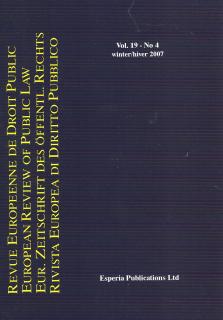
Effect of the Subsidiarity and Proportionality Principles
on the Tourism Growth in the European Union
Stavros Mihalopoulos
Lawyer, Advisor at Law of the municipality of Vathi of the prefecture of Samos,
Msc, Candidate Dr at the European Community Law
of the department of International Studies of the Faculty of Law
of the Aristoteleian University of Thessaloniki
As it is presented in this article, tourism has always had and will continue to have great potential as regards contributing to the achievement of several major EU objectives. Despite the crucial role tourism plays towards the European integration, the European Community in the context of the Treaty has no provision dedicated to tourism which may therefore constitute the legal basis to rely on each time it wishes to legislate with the purpose of taking actions aiming at the tourism development. The high significance of tourism in the achievement of the European integration seems not to have touched the authors of the Treaty of Rome. The only possibility given by the Treaty to this direction is either to support the already existing policies of the European Community that are directly or indirectly related to tourism (such as, e.g., free movement of persons, services and capitals, consumers policy, culture and environmental policy etc.) or is found in former Article 235 TEC (Treaty for the European Community), now Article 308 TEC. Consequently, the European Community, in order to legislate on all these cases, has followed the principles of subsidiarity and proportionality, the implementation of which in the EU sector of tourism is analysed in this article.





















